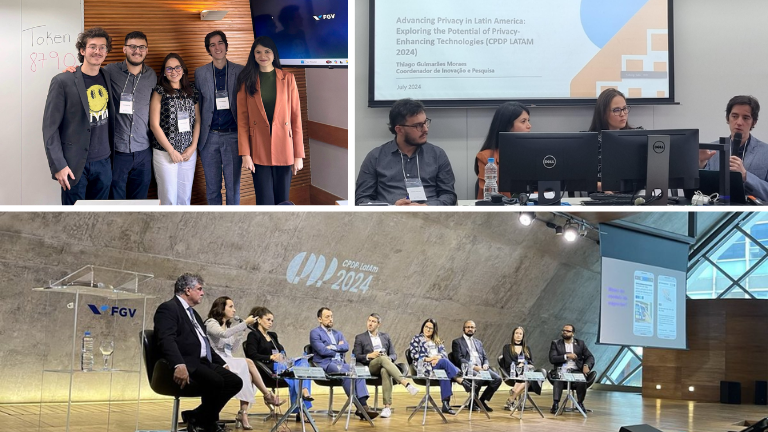
CPDP LatAm 2024: What is Top of Mind in Latin American Data Protection and Privacy? From data sovereignty, to PETs
On July 17-18, the fourth edition of the Computers, Privacy, and Data Protection Conference Latin America (CPDP LatAm) was held in Rio de Janeiro, Brazil. This year’s theme was on “Data Governance: From Latin America to the G20,” highlighting Brazil’s current presidency of the international cooperation forum. As in previous years, FPF participated on the […]

Contextualizing the Kids Online Safety and Privacy Act: A Deep Dive into the Federal Kids Bill
Co-authored by Nick Alereza, FPF Policy Intern and student Boston University School of Law. With contributions from Jordan Francis. On July 30, 2024, the U.S. Senate passed the Kids Online Safety and Privacy Act (KOSPA) by a vote of 91-3. KOSPA is a legislative package that includes two bills that gained significant traction in the […]

Reflections on California’s Age-Appropriate Design Code in Advance of Oral Arguments
Co-authored with Isaiah Hinton, Policy Intern for the Youth and Education Team Update: On Wednesday, July 17th, the U.S. 9th Circuit Court of Appeals heard oral arguments for an appeal of the District Court’s preliminary injunction of the California Age-Appropriate Design Code Act (AADC). Judges Milan Smith Jr., Mark Bennett, and Anthony Johnstone appeared interested […]

We’re in this Together: Expert Speakers Explore Topics Related to Protecting Privacy, Security, and Online Safety for Young People in Australia
On June 26, the Future of Privacy Forum (FPF) and the Australian Strategic Policy Institute (ASPI) co-hosted an online discussion on Privacy, Security, and Online Safety for Young People in Australia. The panel included welcoming remarks from John Verdi, FPF, and Bart Hogeveen, ASPI, and consisted of experts across all three disciplines, including: The discussion […]

Protected: FPF Training Program 2024 – Main
There is no excerpt because this is a protected post.

The World’s First Binding Treaty on Artificial Intelligence, Human Rights, Democracy, and the Rule of Law: Regulation of AI in Broad Strokes
The Council of Europe’s (CoE) Framework Convention on Artificial Intelligence and Human Rights, Democracy, and the Rule of Law (Framework Convention on AI) was adopted on 17 May 2024, after two years of drafting and negotiation. This is the world’s first binding treaty on AI, focusing on protecting human rights, democracy and the rule of […]

Asia-Pacific
The Asia-Pacific Team FPF APAC is led by Josh Lee Kok Thong. Since its inception, FPF APAC has committed itself to the furthering of FPF’s global mission in the region, including to foster greater understanding, convergence, and interoperability of data protection and emerging technology regulation in the Asia-Pacific. Featured Asia-Pacific Focused Work Resources Global Offices FPF […]

Europe
Featured The FPF EUROPE Team FPF’s efforts in Europe are led by Dr. Rob van Eijk. Rob is an established and well-respected leader in the data protection field. Christina Michelakaki, Vasileios Rovilos, Bianca-Ioana Marcu, and Andreea Șerban complete the team in Brussels. The FPF Europe team seeks to raise awareness and foster debate regarding practical […]

Global
FPF is Working Alongside Stakeholders Worldwide on Ways to Improve Data protection AND EMERGING Frameworks. FPF closely follows developments in policymaking and regulation throughout Europe, Africa, the Asia-Pacific, India, Israel, and Latin America. We keep our stakeholders informed of relevant changes, case-law, guidance, policies, and legal requirements, while also providing background and in-depth analysis in […]

Newly Updated Guidance: FPF Releases Updates to the Generative AI Internal Policy Considerations Resource to Provide New Key Lessons For Practitioners
Today, the Future of Privacy Forum (FPF) Center for Artificial Intelligence is releasing a newly updated version of our Generative AI internal compliance document – Generative AI for Organizational Use: Internal Policy Considerations, with new content addressing organizations’ ongoing responsibilities, specific concerns (e.g., high-risk uses), and lessons taken from recent regulatory enforcement related to these technologies. […]
